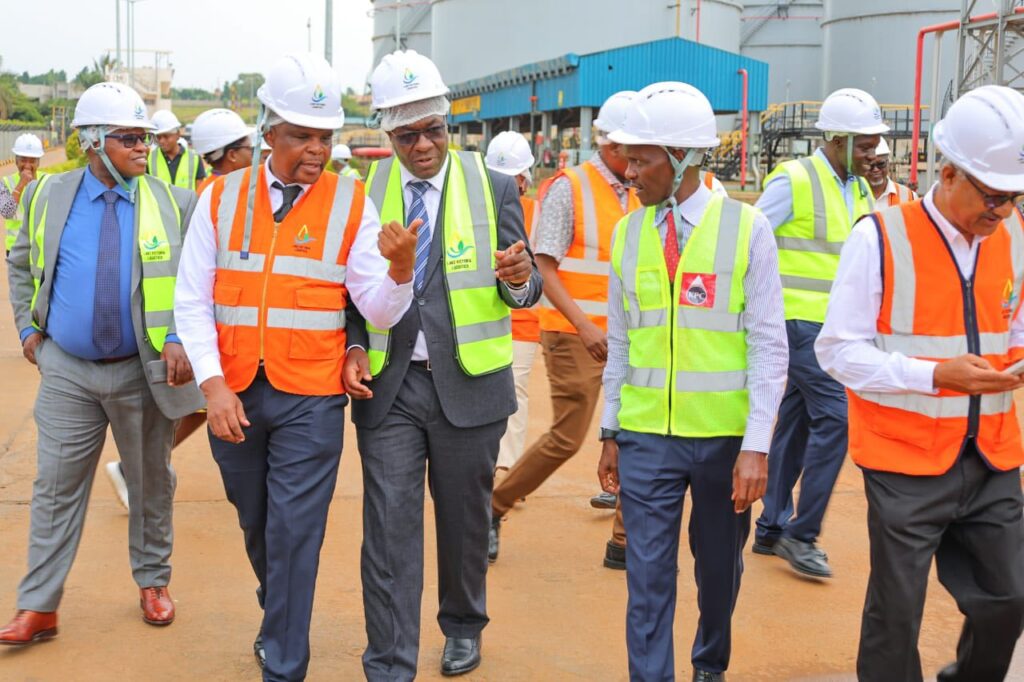The proposed privatisation of the Kenya Pipeline Company (KPC) is facing stiff opposition in Parliament, with legislators calling for full transparency before granting any approvals.
Members of the joint parliamentary committees on Energy and on Privatisation and Public Debt have raised several red flags, including the lack of clarity around KPC’s current valuation, the specifics of its takeover of Kenya Petroleum Refinery Limited (KPRL), and the pricing of shares that would be offered to the public.
Kwenya Thuku, a member of the Energy Committee, criticised the process, saying even the asset valuation report for KPC has not been shared with Parliament. He also noted that the details surrounding KPC’s acquisition of KPRL remain vague.
“KPC took over management of Kenya Petroleum, but this hasn’t been clearly explained. There are too many grey areas. Regulators like the CMA must bring this committee up to speed before seeking any approvals. You can’t ask for a green light and then proceed without proper disclosure,” Thuku argued.
Legislators also stressed that ordinary Kenyans—not just foreign investors or the wealthy elite—should be given priority in acquiring shares. They raised national security concerns over foreign ownership, pointing out that Uganda, a major consumer of KPC’s services, has not been mentioned in the privatisation plans.
Additionally, MPs requested a detailed outline of potential risks that could arise from the transition, particularly its impact on Kenya’s petroleum sector.
Government, CMA Seek to Reassure Parliament
Energy Cabinet Secretary Opiyo Wandayi assured MPs that the government would retain a significant stake in KPC to safeguard public interests, adding that no major fiscal risks are anticipated.
“We don’t foresee any fiscal risks as long as the government remains a key shareholder. Our internal analysis supports this,” Wandayi said.
Capital Markets Authority (CMA) CEO Wycliff Shamiah also emphasised the need for comprehensive disclosure before the listing process begins.
“They must go through several regulatory stages before coming to us for listing. Approvals must come after all necessary information is made available—not before,” Shamiah noted.
Wandayi disclosed that KPC’s latest valuation, based on its 2024 financial statements, stands at Ksh 120.7 billion, with no liabilities. He added that although KPC hasn’t received major capital investment in the past five years, it posted Ksh 39.8 billion in revenue and Ksh 16.5 billion in gross profit.
However, he clarified that the valuation does not yet include KPRL, which is still in the final stages of being integrated into KPC.
“We’re near the end of the KPRL transaction, so its value hasn’t been factored into the KPC total yet. A final valuation will be available once that’s complete,” he said.
Thuku, however, remained sceptical, pointing out that a single pipeline under KPC is valued at around Ksh 60 billion, which raises questions about the overall Sh120.7 billion valuation.
“Chair, we can’t approve this in its current state. We need full disclosure before we proceed,” he insisted.
Next Steps
MPs remain adamant that the privatisation process should not move forward without full transparency, a confirmed valuation, and clear protection of public interest.
A follow-up meeting is scheduled between the committees and officials from the Treasury and the Office of the Attorney General to further deliberate on the matter.
The outcome of these discussions will be crucial in determining the future of KPC’s privatization—and its broader implications for Kenya’s energy sector and financial markets.

